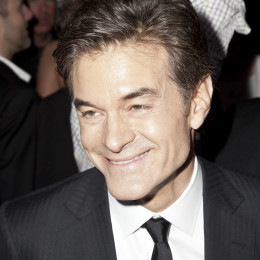Daytime Emmys Have a Low Bar for “Informative Talk Shows”

Perhaps the National Academy of Television Arts and Sciences should drop the final word from its title, after awarding “The Dr. Oz Show” a Daytime Emmy for its role as an “outstanding informative talk show.”
Clearly, it doesn’t matter to the Academy that the information Dr. Mehmet Oz so “outstandingly” peddles is pure fiction. A 2014 study in the journal BMJ found that two thirds of Dr. Oz’s recommendations – including cutting salt to avoid cancer, and cutting GMOs to cure autism – were either baseless or completely contradicted by available scientific evidence. In that same year, “America’s Doctor” came under fire in a U.S. Senate hearing for peddling “miracle” weight loss products like green coffee beans and raspberry ketone supplements – both of which faced lawsuits from the FTC on charges of false advertising.
The Congressional hearing certainly wasn’t the doctor’s first spat with the federal government. Following a 2011 Oz segment claiming that apple juice contained dangerously high levels of arsenic, the Food and Drug Administration (FDA) had to issue a statement quelling public fears. The agency’s tests of the exact same lot of apple juice showed that arsenic levels were well below the safety threshold – and in some cases measured less than one tenth the acceptable 23 parts per billion standard.
Oz’s profound influence over the American daytime television viewer so concerned other physicians that several have publically called for his removal from Columbia University Medical Center:
“Dr. Oz has repeatedly shown disdain for science and for evidence-based medicine, as well as baseless and relentless opposition to the genetic engineering of food crops…Worst of all, he has manifested an egregious lack of integrity by promoting quack treatments and cures in the interest of personal financial gain.”
Dr. Oz’s defense rests with the assertion that he is empowering viewers to make their own health decisions. But we tend to agree with Michael Specter, who authored a scathing criticism of Dr. Oz in The New Yorker, when he editorialized: “when [Oz] tells his audience, with no credible evidence, that red palm oil may reduce the risk of Alzheimer’s disease, is he empowering people? Or is he encouraging them to endanger their health with another ‘miracle’?”
With medical professionals turning their backs on Dr. Oz in droves, it’s outrageous that his program would even merit consideration as an “outstanding informative talk show.”





